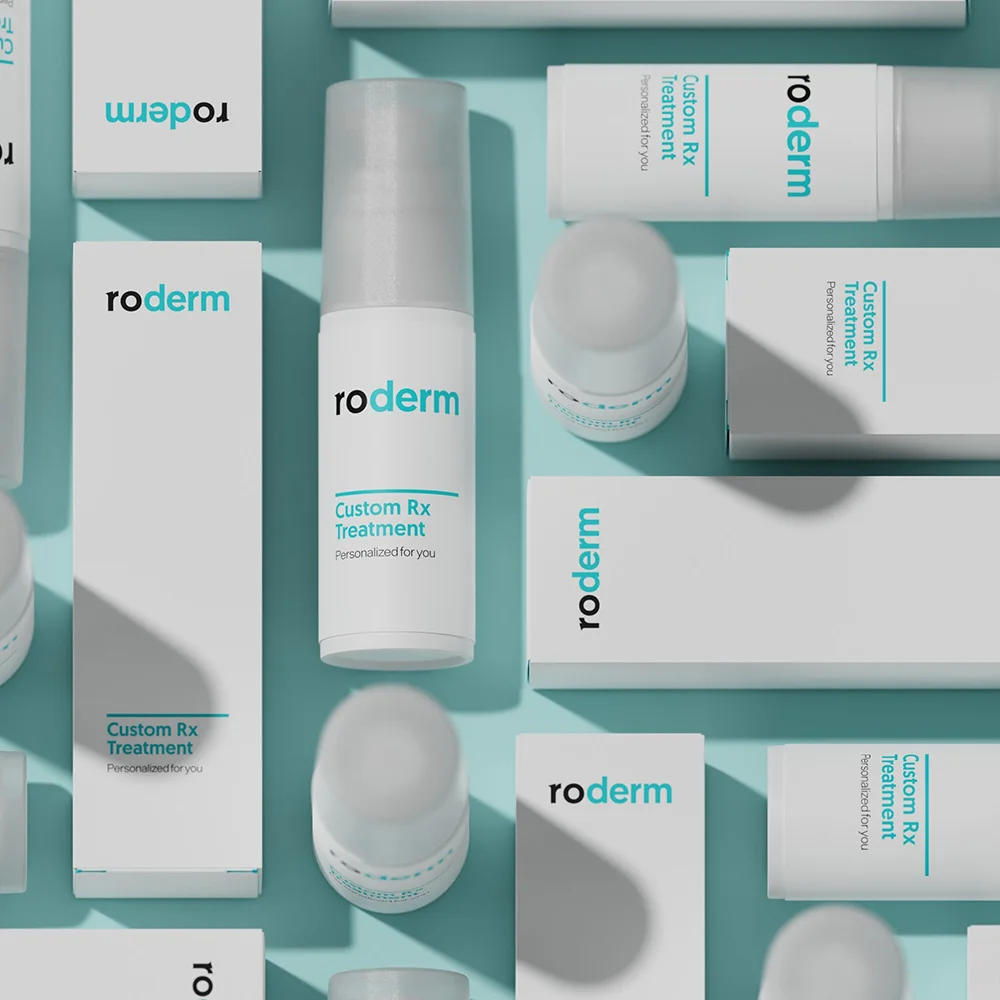Here's what we'll cover
Here's what we'll cover
Here's what we'll cover
Stress seems to be a common denominator for many medical and mental issues, so it is not surprising that acne has also been linked to stress. But does stress acne really exist? Read on to find out how stress can affect your acne.
What is stress acne?
Acne (acne vulgaris) is a chronic, inflammatory condition that affects the skin’s sebaceous glands and hair follicles. When these oil glands and follicles become plugged with a buildup of bacteria, dead skin cells, and oil (sebum), breakouts and zits occur. Cases of acne can range from mild to severe depending on the person, but individual cases can also worsen or improve over time. But does the changing severity have anything to do with stress?
There’s no denying the physiological effects of stress. When you are under a lot of stress, a whole cascade of hormonal changes happens—the important takeaway is that stress affects the body’s immune system and its ability to heal (Dhabhar, 2014).
Does stress cause acne directly?
One study found a close association between emotional stress levels and the severity of acne breakouts. The researchers looked at students during final exams, a period of high psychological stress. They found that acne may get worse during this stressful time. So, while there may not be such a thing as stress-causing acne, stressful situations can make flare-ups worse, especially in acne-prone skin (Chiu, 2003).
Causes of acne
Stress is only one of many factors that can contribute to pimples and breakouts. Other potential causes of acne include (Thiboutot, 2021):
Hormones
Genetics
Cosmetics
Skincare habits
Skin friction
Side effects of medications
Underlying medical conditions
Wearing masks
Symptoms of acne
As many of us know, acne is not limited to your face, regardless of whether your breakouts are due to stress or something else. They can show up anywhere on your body, including your face, neck, chest, shoulders, and back. There are multiple types of blemishes, too, including (Sutaria, 2020):
Whiteheads: no inflammation and pore is sealed with skin (closed comedones)
Blackheads: no inflammation and pore is open (open comedones)
Papules: small amounts of inflammation
Pustules: more inflammation and pus in the pore
Nodules/cysts: deep inflammation and infection
How to treat stress acne
Excess oil can cause acne, but skin oil production differs from person to person based on age and skin type. For these reasons, many acne treatments target oil production.
Some over-the-counter products such as moisturizers and cleansers aim to reduce oil buildup on acne-prone skin. These products will use glycolic acid, salicylic acid, or benzoyl peroxide as their active ingredient. Some products work best as spot treatments and may be most helpful if you struggle with fewer large zits, rather than general breakouts.
If you’re still struggling with adult acne and have tried over-the-counter acne treatments, it may be helpful to visit a dermatologist who can prescribe a stronger treatment and help craft a skincare routine tailored to your skin type.
Tips for reducing stress acne
Self-care may also be one way to get closer to achieving clear skin. Studies show that 77% of people in the United States reported regularly feeling physical symptoms caused by stress (APA, 2017).
Unfortunately, the things that most people are stressed about—like work, the future of our nation, money, and the political climate—aren’t temporary (APA, 2014). That means managing stress, instead of waiting for it to pass, is the best way forward.
Managing stress involves leading a healthy lifestyle that includes eating healthy, exercising regularly, and getting enough sleep. But it’s also about your mental health. If you feel like you still need help managing stress after following a healthy lifestyle, reach out to a healthcare provider.
How to prevent stress acne
In addition to managing your stress, there are other things you can do to prevent acne breakouts, even stress acne, including:
Check your skin and hair products—they should say non-comedogenic, oil-free, non-acnegenic, or “won’t clog pores.”
Wash (don’t scrub) your face with a gentle, non-abrasive cleanser and pat (don’t rub) it dry every morning and evening and after sweating.
Avoid allowing your skin to become too dry—use a non-acnegenic moisturizer whenever necessary.
Alcohol-free cosmetics (and makeup removers) are less likely to dry out your skin.
Always remove your makeup before bedtime.
DO NOT pop your acne pimples.
DISCLAIMER
If you have any medical questions or concerns, please talk to your healthcare provider. The articles on Health Guide are underpinned by peer-reviewed research and information drawn from medical societies and governmental agencies. However, they are not a substitute for professional medical advice, diagnosis, or treatment.
References
American Psychological Association (APA). (2014). Stress in America: paying with our health. Stress in America TM Survey . Retrieved on June 4, 2021 from https://www.apa.org/news/press/releases/stress/2014/stress-report.pdf
American Psychological Association (APA). (2017). Stress in America: The state of our nation. Stress in America TM Survey . Retrieved on June 4, 2021 from https://www.apa.org/news/press/releases/stress/2017/state-nation.pdf
Chiu, A., Chon, S. Y., & Kimball, A. B. (2003). The response of skin disease to stress. Archives of Dermatology , 139(7). doi: 10.1001/archderm.139.7.897, Retrieved from https://pubmed.ncbi.nlm.nih.gov/12873885/
Dhabhar F. S. (2014). Effects of stress on immune function: the good, the bad, and the beautiful. Immunologic Research , 58(2-3), 193–210. doi: 10.1007/s12026-014-8517-0. Retrieved from https://pubmed.ncbi.nlm.nih.gov/24798553/
Greenwood, B. N., & Fleshner, M. (2011). Exercise, stress resistance, and central serotonergic systems. Exercise and Sport Sciences Reviews, 39(3), 140–149. doi: 10.1097/jes.0b013e31821f7e45. Retrieved from https://pubmed.ncbi.nlm.nih.gov/21508844/
Kiecolt-Glaser, J., Marucha, P., Mercado, A., Malarkey, W., & Glaser, R. (1995). Slowing of wound healing by psychological stress. The Lancet , 346(8984), 1194–1196. doi: 10.1016/s0140-6736(95)92899-5. Retrieved from https://pubmed.ncbi.nlm.nih.gov/7475659/
Larrieu, T., & Layé, S. (2018). Food for mood: relevance of nutritional omega-3 fatty acids for depression and anxiety. Frontiers in Physiology , 9. doi: 10.3389/fphys.2018.01047. Retrieved from https://pubmed.ncbi.nlm.nih.gov/30127751/
Lindseth, G., Helland, B., & Caspers, J. (2015). The effects of dietary tryptophan on affective disorders. Archives of Psychiatric Nursing , 29(2), 102–107. doi: 10.1016/j.apnu.2014.11.008. Retrieved from https://pubmed.ncbi.nlm.nih.gov/25858202/
Triantafillou, S., Saeb, S., Lattie, E. G., Mohr, D. C., & Kording, K. P. (2019). Relationship between sleep quality and mood: ecological momentary assessment study. JMIR Mental Health , 6(3). doi: 10.2196/12613. Retrieved from https://pubmed.ncbi.nlm.nih.gov/30916663/






